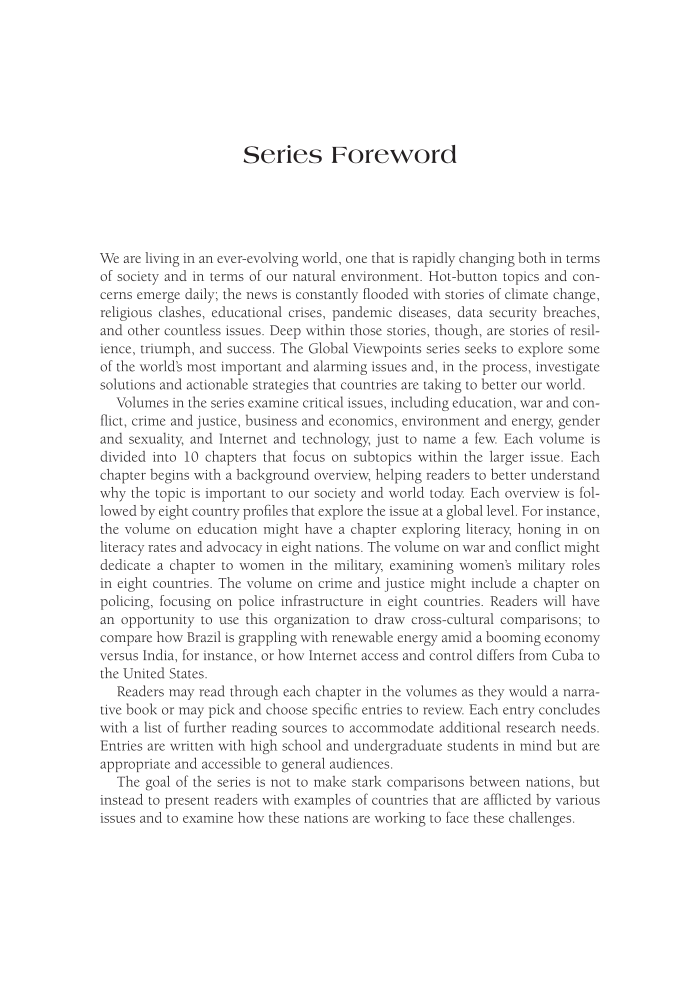Series Foreword We are living in an ever-evolving world, one that is rapidly changing both in terms of society and in terms of our natural environment. Hot-button topics and con- cerns emerge daily the news is constantly flooded with stories of climate change, religious clashes, educational crises, pandemic diseases, data security breaches, and other countless issues. Deep within those stories, though, are stories of resil- ience, triumph, and success. The Global Viewpoints series seeks to explore some of the world’s most important and alarming issues and, in the process, investigate solutions and actionable strategies that countries are taking to better our world. Volumes in the series examine critical issues, including education, war and con- flict, crime and justice, business and economics, environment and energy, gender and sexuality, and Internet and technology, just to name a few. Each volume is divided into 10 chapters that focus on subtopics within the larger issue. Each chapter begins with a background overview, helping readers to better understand why the topic is important to our society and world today. Each overview is fol- lowed by eight country profiles that explore the issue at a global level. For instance, the volume on education might have a chapter exploring literacy, honing in on literacy rates and advocacy in eight nations. The volume on war and conflict might dedicate a chapter to women in the military, examining women’s military roles in eight countries. The volume on crime and justice might include a chapter on policing, focusing on police infrastructure in eight countries. Readers will have an opportunity to use this organization to draw cross-cultural comparisons to compare how Brazil is grappling with renewable energy amid a booming economy versus India, for instance, or how Internet access and control differs from Cuba to the United States. Readers may read through each chapter in the volumes as they would a narra- tive book or may pick and choose specific entries to review. Each entry concludes with a list of further reading sources to accommodate additional research needs. Entries are written with high school and undergraduate students in mind but are appropriate and accessible to general audiences. The goal of the series is not to make stark comparisons between nations, but instead to present readers with examples of countries that are afflicted by various issues and to examine how these nations are working to face these challenges.
Document Details My Account Print multiple pages
Print
You have printed 0 times in the last 24 hours.
Your print count will reset on at .
You may print 0 more time(s) before then.
You may print a maximum of 0 pages at a time.




















































































































































































































































































































































